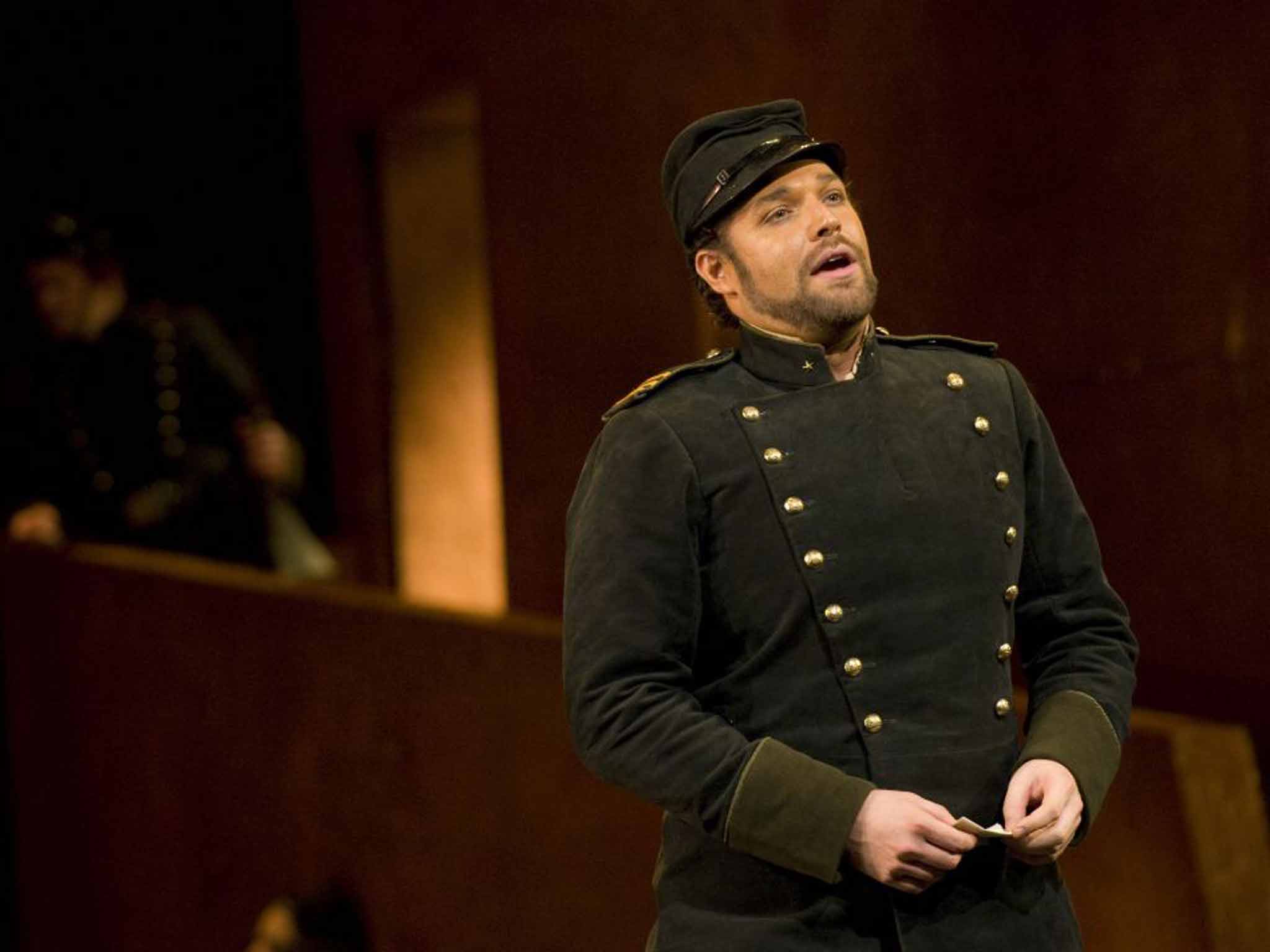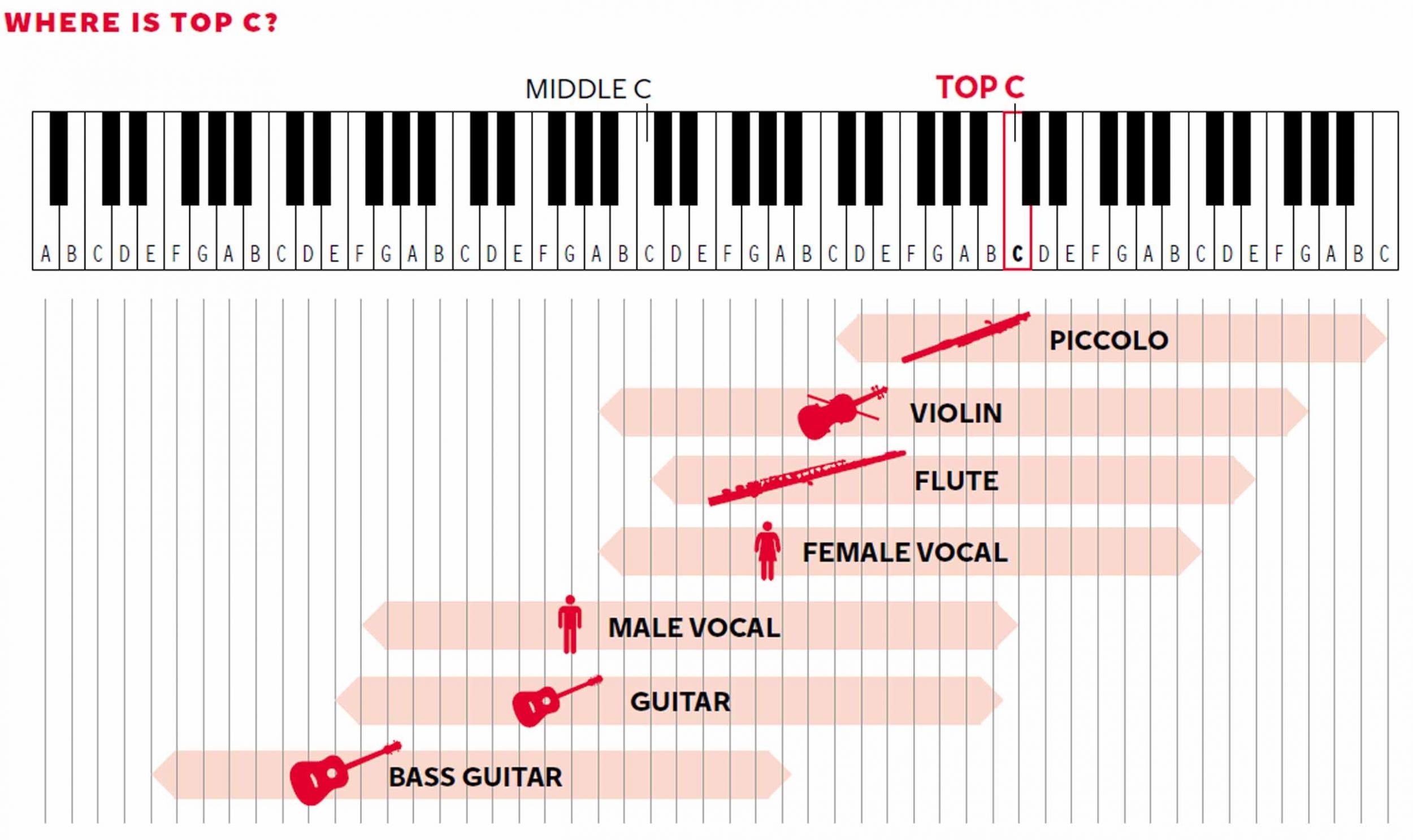Bryan Hymel on 'Carmen' and the perils of singing the most difficult notes in opera
It was only after trying to sing like the 'three Tenors' that I found my operatic voice

Your support helps us to tell the story
From reproductive rights to climate change to Big Tech, The Independent is on the ground when the story is developing. Whether it's investigating the financials of Elon Musk's pro-Trump PAC or producing our latest documentary, 'The A Word', which shines a light on the American women fighting for reproductive rights, we know how important it is to parse out the facts from the messaging.
At such a critical moment in US history, we need reporters on the ground. Your donation allows us to keep sending journalists to speak to both sides of the story.
The Independent is trusted by Americans across the entire political spectrum. And unlike many other quality news outlets, we choose not to lock Americans out of our reporting and analysis with paywalls. We believe quality journalism should be available to everyone, paid for by those who can afford it.
Your support makes all the difference.
As a child I had aspirations to follow in the footsteps of Louis Armstrong. You see, trumpet players in New Orleans are royalty – much as tenors are the princes of Italy. But gradually my dreams of playing gigs in the French Quarter faded as I became interested in another, older art form. While jazz was still in its infancy, New Orleans boasted three opera companies at the centre of its cultural and social scene. The first documented performance was in 1796, and in 1859 the French opera house opened with a gala performance of Rossini's Guillaume Tell. Little did I know that this opera would play a significant part in my personal operatic journey.
It was through Guillaume Tell that I first encountered the heroic French repertoire. My voice teacher, Bill Schuman, suggested I learn the big Act IV scene for the tenor, Arnold, which includes a whopping nine top Cs throughout the aria and cabaletta. Although I hadn't sung much French music, he thought that the tessitura (range) would be well suited to my voice; and he was right. Guillaume Tell is one of the best examples of French grand opera, with five acts of virtuoso singing, two ballets and plenty of melodramatic conflicts. Gilbert-Louis Duprez, a Frenchman, became an operatic legend when he sang a top C with the full weight of his chest voice on stage in Act IV. Up until this time, tenors sang high notes in a voix mixte (a mixture between head voice and the chest voice), but this new technique allowed for a fuller sound that carried strongly over the orchestra.
As a young singer of 27, I found kinship in Duprez since my voice was fuller than most who attempt this repertoire. Perhaps it was from my years of trumpet-playing, but my voice needed deep breath and support in order to reach those top Cs. I spent most of my school years studying the Italian repertoire, and roles such as the Duke of Mantua (Rigoletto), Rodolfo (La bohème) and Cavaradossi (Tosca), and listening to tenors such as Luciano Pavarotti, Franco Corelli and Enrico Caruso. In fact, it was only after trying to sing like the “three Tenors” that I found my operatic voice! In subsequent years, it was my easy top register that opened the door for me to other composers such as Giacomo Meyerbeer (who created the first real French grand opera with Robert le diable) and Hector Berlioz (who perhaps wrote the most famous French dramatic tenor role of all, Aeneas in Les Troyens).

When Antonio Pappano asked me to look at the title role of Robert le diable, I had no idea what I was getting myself into; but I jumped at the chance to sing this role with the Royal Opera. The murderously high range proved to be a great opportunity for me, and one which led to my Olivier Award. But even before Robert le diable, I was given the opportunity to audition as Aeneas for a production at Dutch National Opera. While I was singing Arturo in I puritani in Greece, I was asked to learn the part and sing excerpts of it on video. A week later I learned I had got the job and started my relationship with what turned out to be my breakthrough role. After singing Les Troyens in Amsterdam, I reprised the role of Aeneas for the Royal Opera, and it was in this role that I made my debut at the Metropolitan Opera later the same year. In Les Troyens the lead tenor's top C comes in the last act.
I am thrilled to return to the Royal Opera to sing Don José in Carmen, the role in which I made my Royal Opera debut in 2010. And on a personal note, it offers just one top C at the end of Act II, when Don José has given in.
Bryan Hymel sings Don José in 'Carmen', Royal Opera House to 10 November; 'Carmen' continues until 30 November (020 7304 4000, roh.org.uk)
Join our commenting forum
Join thought-provoking conversations, follow other Independent readers and see their replies
Comments